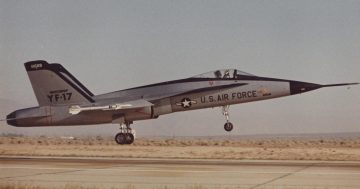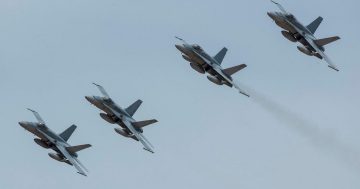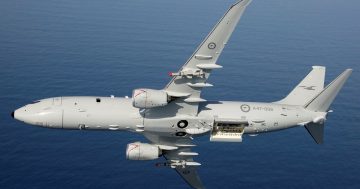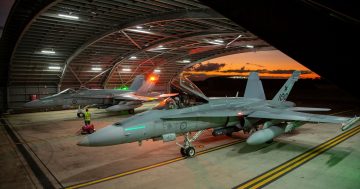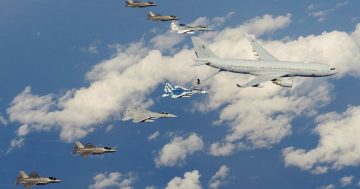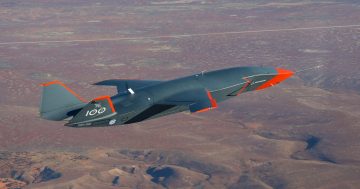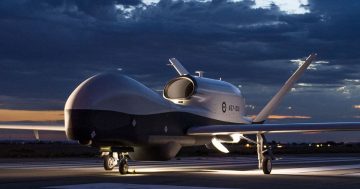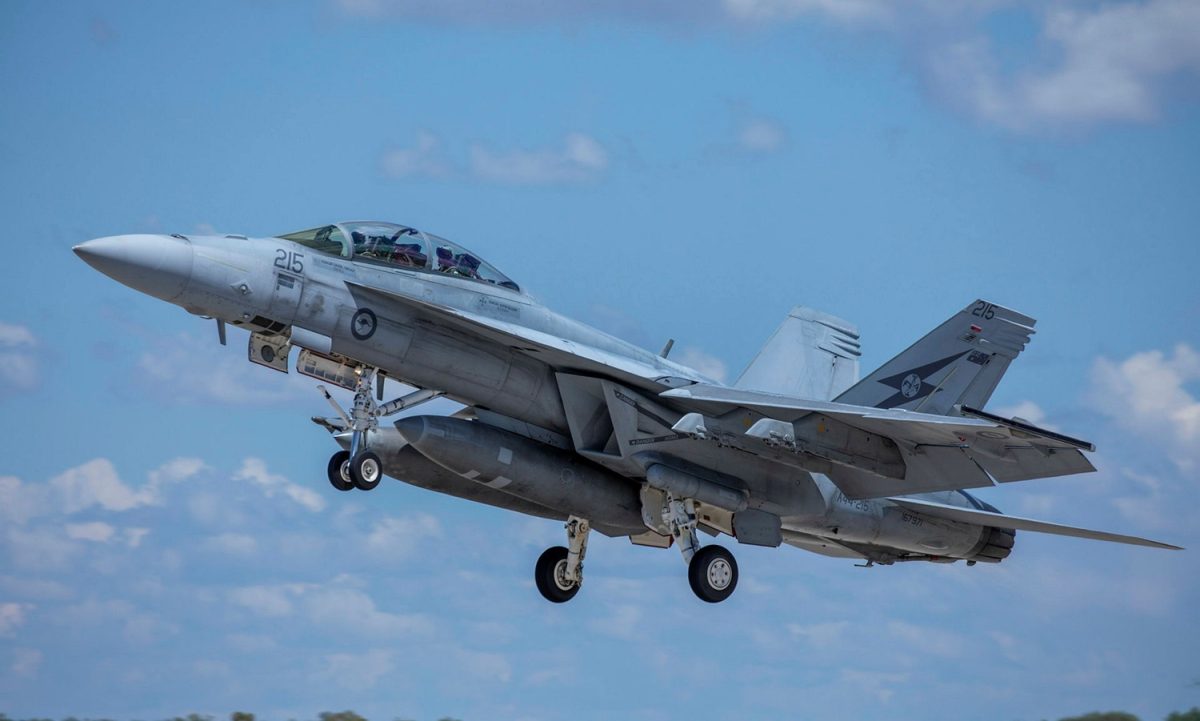
The sustainment contract with Boeing will cover the RAAF’Ss 24 F/A-18F Super Hornets and 12 EA-18G Growlers until 2030. Photo: ADF.
Boeing Defence Australia has been awarded a five-year, $600-million contract extension to support the Royal Australian Air Force’s fleet of F/A-18F Super Hornet fighters and EA-18G Growler electronic attack aircraft.
The Air Combat and Electronic Attack Sustainment (ACEAS) contract commenced in 2016 and was first extended in 2020. This further extension will see Boeing remain the platform steward responsible for the aircraft’s maintenance, engineering, project management, upgrades and sustainment until 2030.
The RAAF operates 24 Super Hornets and 12 Growlers, all of which were built by Boeing in St Louis in the US. The Super Hornets were ordered in 2007 and delivered in 2010. They were initially bought as a decade-long stop-gap bridging capability between the retirement of the F-111C strike aircraft and the introduction of the Lockheed Martin F-35A.
But with ongoing delays to the F-35 program, a decision was made to retain the Super Hornets for a full life-of-type, which will take them out to at least the early-to-mid 2030s and possibly beyond.
The US Navy is currently upgrading the majority of its 500-plus Super Hornets to a new Block III standard, which will see structural improvements, new cockpit displays, an advanced core processer and networking capability, new radar modes, an improved electronic warfare system and subtle enhancements to the aircraft’s radar signature management.
To maintain commonality with the US Navy fleet to keep spares and sustainment costs low, the RAAF has always said it would remain in ‘lockstep’ with the US Navy as it upgrades its fleet, so a decision on whether to add some or all of the Block III elements for the RAAF’s jets will need to be made soon.
In fact, the new core processor and networking capability – dubbed Tactical Targeting Network Technology (TTNT) and Distributed Targeting Processor-Networked (DTP-N) – has already been adopted by the RAAF for both the Super Hornets and Growlers.
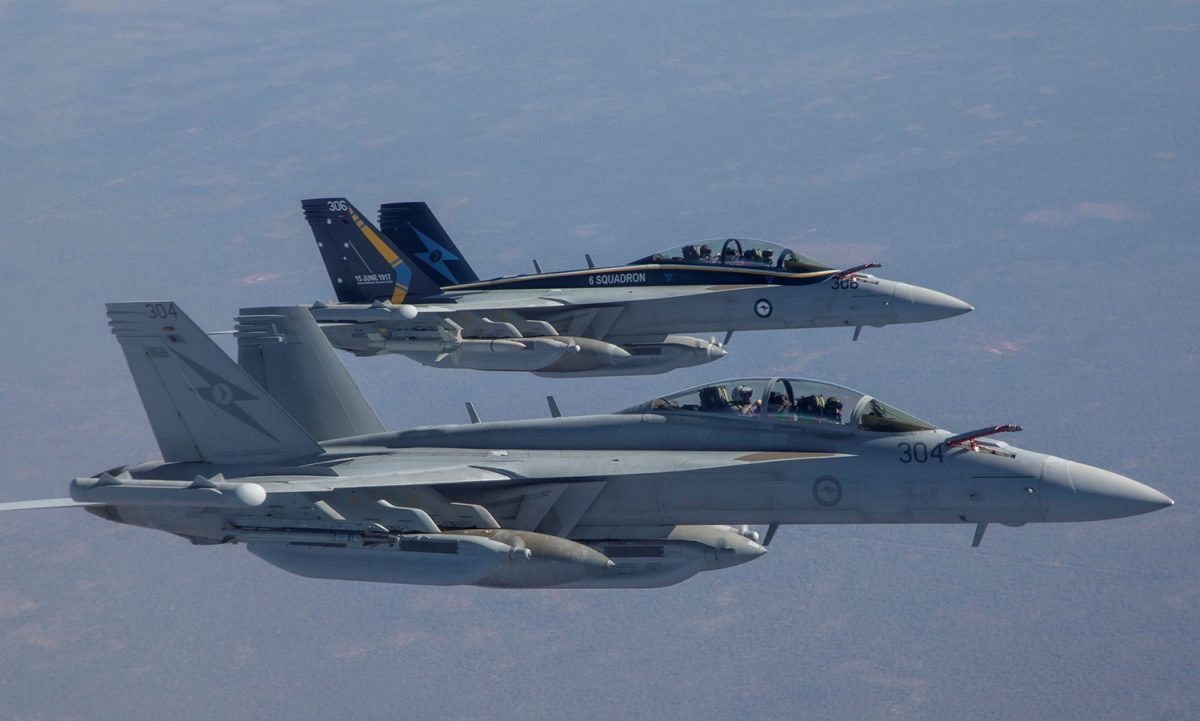
The EA-18G Growler retains 95 per cent commonality with the F/A-18F but adds radar warning receivers and jammer pods to disrupt enemy radar transmissions. Photo: ADF.
The Growler is essentially a Super Hornet airframe with 95 per cent commonality but adds additional capabilities to give it an electronic attack capability. Its radar warning receivers and jammer pods allow it to locate and degrade or jam enemy radar and communications systems. It also carries the AGM-88 HARM series of anti-radiation missiles which can home in on and destroy enemy radar transmitters.
The RAAF’s Growlers were acquired in 2014 and entered service in 2017. One aircraft was lost in a takeoff crash in the US in early 2018 and has since been replaced. They are scheduled to achieve full operational capability this year as upgrades to the aircraft and its training ranges through the Project AIR 5439 Phase 6 Advanced Growler program enter service.
The Super Hornets are operated by No 1 Squadron and the Growlers by No 6 Squadron, both of which are elements of No 82 Wing based at RAAF Base Amberley southwest of Brisbane.
Boeing’s sustainment contract supports more than 350 skilled jobs at Amberley and nearby sites, and 90 per cent of the value of the contract stays in Australia.
Minister for Defence Industry Pat Conroy said Defence’s most valuable asset is its people, both in uniform and industry.
“In a time of escalating global tensions, maintaining top-tier aircraft and a highly skilled local workforce is paramount,” he said.
“This contract extension fortifies our preparedness for any potential challenges.
“A strong Defence industry is also crucial to protecting Australians and their interests, as well as contributing to regional stability.”
Vice president and managing director of Boeing Defence Australia Scott Carpendale said the extension was a testament to the strength of Boeing’s partnership with the Commonwealth, RAAF and Australian industry.












